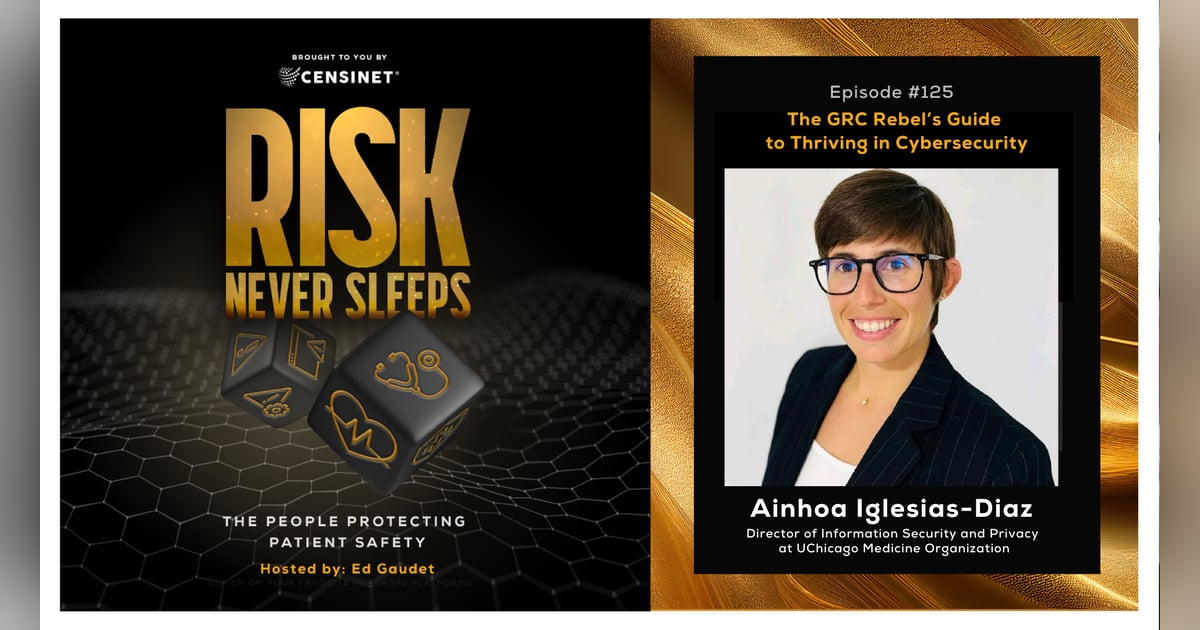Episode #125. The GRC Rebel’s Guide to Thriving in Cybersecurity, with Ainhoa Iglesias-Diaz, Director of Information Security and Privacy at UChicago Medicine Organization

GRC (Governance, Risk Management, and Compliance) is evolving, requiring practitioners to have both technical and business acumen.
In this episode, Ainhoa Iglesias-Diaz highlights the importance of a broad background to understand technical and business security aspects, enabling effective communication and collaboration. Ainhoa emphasizes the criticality of third-party risk management, advocating for a lifecycle approach that monitors vendors beyond onboarding. She also stresses the significance of security awareness training to mitigate insider threats and promote a culture of reporting suspicious activities without fear.
Tune in to gain insights into the evolving role of GRC in healthcare and learn how a diverse background can lead to success!
For more information and ways to increase risk awareness and safety, visit us at www.censinet.com.
About Ainhoa Iglesias-Diaz:
Ainhoa Iglesias Díaz is a dedicated healthcare professional currently serving as a Clinical Research Coordinator at UChicago Medicine. In this role, she oversees clinical trials, ensuring adherence to protocols and regulatory standards. Ainhoa's academic foundation includes a Bachelor of Science in Biology from the University of Illinois Chicago and a Master of Public Health from Northwestern University. Her educational background equips her with a comprehensive understanding of scientific research and public health principles. Passionate about advancing medical knowledge, Ainhoa collaborates with multidisciplinary teams to facilitate research to improve patient outcomes. Her commitment to excellence and continuous learning drives her to stay updated with the latest clinical research and public health developments.
Things You’ll Learn:
- A broad background, including technical experience, is crucial for GRC professionals to understand security requirements' "what" and " how. "
- Third-party risk management should take a lifecycle approach, continuously monitoring vendors and adapting to changes in scope or technology.
- Security awareness training is essential to mitigating insider threats. It educates users on suspicious activity and fosters a culture of fear-free reporting.
- Leaving your comfort zone and exploring different opportunities can lead to valuable learning experiences and career growth.
- The healthcare cybersecurity landscape is constantly evolving; those entering the field should be open-minded and willing to adapt.




